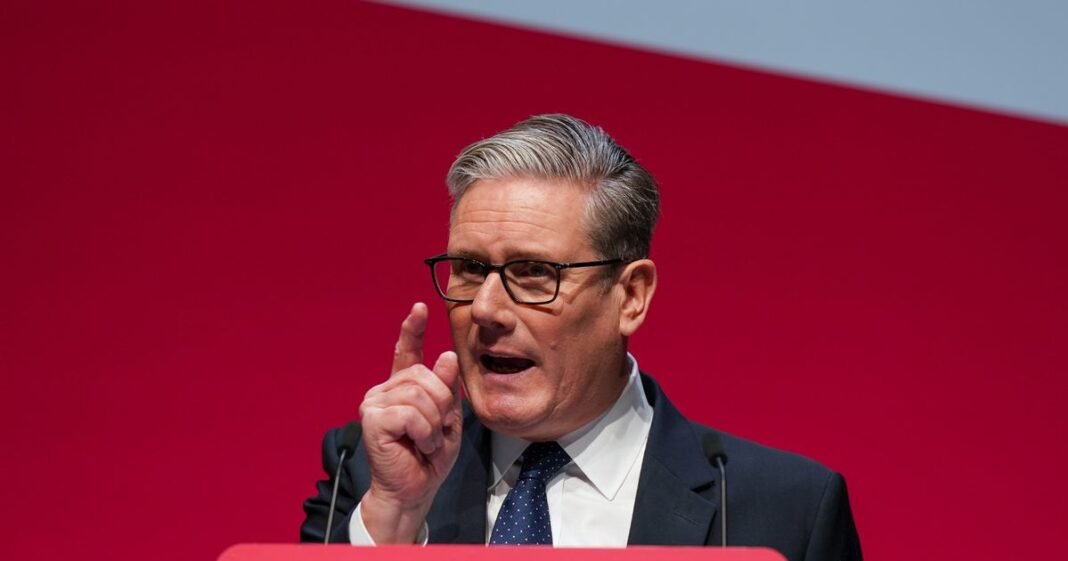Keir Starmer is set to deliver a significant address at the Labour Party conference today, aiming to ignite optimism across the nation. The Prime Minister will emphasize that the UK stands at a critical juncture, delineating the contrast between his vision and the rising popularity of Nigel Farage.
Addressing attendees at the annual Labour gathering in Liverpool, he will frame the current situation as a crucial test, likening it to the monumental task of rebuilding the country post-war. Despite facing criticism for engaging with Farage on “Reform’s turf,” the PM will assert to apprehensive Labour members that challenging Reform will necessitate tough decisions that may not always align with the party’s comfort.
Furthermore, he will unveil significant policy changes, including the introduction of an innovative ‘online hospital’ by 2027, aimed at reducing waiting times for healthcare through the creation of additional appointments. This initiative will enable patients to access prescriptions, diagnostic services, and medical advice from their homes, prioritizing treatments with lengthy waiting lists initially and expanding the scope gradually.
Health Secretary Wes Streeting described the plan as a step towards modernizing the NHS and adapting to contemporary needs. He highlighted the efficiency of receiving care online, which not only expedites the process for patients but also liberates capacity for those seeking in-person consultations with healthcare professionals.
The PM’s healthcare proposal not only underscores the Government’s commitment to enhancing citizens’ daily lives but also serves to distinguish Labour from Reform, emphasizing the administration’s dedication to progress. As Mr. Streeting condemned Farage’s party as “anti-science, anti-reason, and anti-health,” the impending clash with Farage will take center stage in Starmer’s speech, following his recent critique of Reform’s immigration policies.
In his address, Starmer will rally Labour MPs to unite against the populist right, prioritizing collective action over internal discord amid uncertainties surrounding his leadership. Expressing his belief in fostering national unity and pursuing common objectives, he envisions a cohesive Britain that revitalizes public services, bolsters the economy, and reverses the trajectory of decline.

